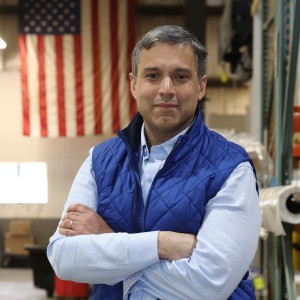
‘Our hearts never forget’: Marguerite Moffet wants recognition for the sacrifices of NH veterans
Marguerite Moffett visits the New Hampshire State Veteran’s Cemetery often to see her son’s gravestone and memorial.

Granite Geek: Turtle Rescue wonders if you’re as tough as a turtle. (Answer: No.)
Next time you have to sit through some guy’s boring litany about how tough he is, here’s a good way to end the blather: “Dude, you think you’re resilient, but you’re no turtle.”
Most Read
 Bow offers water to Hooksett plant, asks Concord to help fix its supply
Bow offers water to Hooksett plant, asks Concord to help fix its supply
 New Concord apartments open in former First Congregational Church
New Concord apartments open in former First Congregational Church
 Goodwell Foods takes over Rustic Crust private label frozen pizza
Goodwell Foods takes over Rustic Crust private label frozen pizza
 St. Paul’s School won’t reopen public access to Turkey Pond
St. Paul’s School won’t reopen public access to Turkey Pond
 Concord Christian Academy celebrates accomplishment and faith at graduation ceremony
Concord Christian Academy celebrates accomplishment and faith at graduation ceremony
 Inside EFAs: How school vouchers have fueled a Christian school enrollment boom in New Hampshire
Inside EFAs: How school vouchers have fueled a Christian school enrollment boom in New Hampshire
Editors Picks
 The Monitor’s guide to the New Hampshire legislature
The Monitor’s guide to the New Hampshire legislature
 One year after UNH protest, new police body camera footage casts doubt on assault charges against students
One year after UNH protest, new police body camera footage casts doubt on assault charges against students
 ‘It’s always there’: 50 years after Vietnam War’s end, a Concord veteran recalls his work to honor those who fought
‘It’s always there’: 50 years after Vietnam War’s end, a Concord veteran recalls his work to honor those who fought
 ‘We honor your death’ – Arranging services for those who die while homeless in Concord
‘We honor your death’ – Arranging services for those who die while homeless in Concord
Sports

High schools: Final results from the regular season, tennis tourney action
Merrimack Valley 11, Pembroke 0
Opinion

Opinion: Our leaders’ puzzling decision to eliminate the State Council on the Arts
Sal Prizio is the executive director of the Capitol Center for the Arts.
 Opinion: How dark can it get?
Opinion: How dark can it get?
 Opinion: Unfair taxes, unfair schools: The New Hampshire way
Opinion: Unfair taxes, unfair schools: The New Hampshire way
 Opinion: In the fight to stop sexual violence, can polio hold the solutions?
Opinion: In the fight to stop sexual violence, can polio hold the solutions?
 Opinion: Where are the permanent solutions for a more stable budget?
Opinion: Where are the permanent solutions for a more stable budget?

Your Daily Puzzles

An approachable redesign to a classic. Explore our "hints."

A quick daily flip. Finally, someone cracked the code on digital jigsaw puzzles.

Chess but with chaos: Every day is a unique, wacky board.

Word search but as a strategy game. Clearing the board feels really good.

Align the letters in just the right way to spell a word. And then more words.
Politics

New Hampshire school phone ban could be among strictest in the country
When Gov. Kelly Ayotte called on the state legislature to pass a school phone ban in January, the pivotal question wasn’t whether the widely popular policy would pass but how far it would go.
 Sununu decides he won’t run for Senate despite praise from Trump
Sununu decides he won’t run for Senate despite praise from Trump
Arts & Life

Vintage Views: The Liars Club
When we are young and innocent our thoughts are pure. We are full of honesty and simply have not formed an opinion regarding what might be right or what might be wrong. When a young child is questioned and fears there might be adverse consequences for an action the child will naturally respond in a manner that will allow them to not receive punishment.
 Two Villages Art Society begins summer members show
Two Villages Art Society begins summer members show
 Artist Spotlight: Brittany Batchelder
Artist Spotlight: Brittany Batchelder
Obituaries
 Alexander William Saltmarsh
Alexander William Saltmarsh
Bow, NH - It is with profound sadness that we announce the passing of Alexander William Saltmarsh, a lifelong resident of Bow, New Hampshire, who died peacefully at the family home on May 19, 2025, at the age of 79. Born on January 31, ... remainder of obit for Alexander William Saltmarsh
 Beatrice Kapreilian
Beatrice Kapreilian
Beatrice "Bea" Kapreilian Sarasota, FL - KAPREILIAN, Beatrice "Bea" Age 88, of Sarasota, FL and Falmouth, MA, died peacefully in her sleep with her family and all of her grandchildren sharing their love, on Wednesday, May 14, 2025. She w... remainder of obit for Beatrice Kapreilian
 Annette L. Wolfe
Annette L. Wolfe
Concord, NH - ANNETTE L WOLFE, 88, passed away on Friday May 9th 2025 at Presidential Oaks in Concord, NH with her loving children by her side. She was born in Presque Isle, Maine, the daughter of the late Paul Lamoreau and Ruth (Hasey)... remainder of obit for Annette L. Wolfe
 Alexander William Saltmarsh
Alexander William Saltmarsh
Bow, NH - It is with profound sadness that we announce the passing of Alexander William Saltmarsh, a lifelong resident of Bow, New Hampshire, who died peacefully at the family home on May 19, 2025, at the age of 79. Born on January 31, ... remainder of obit for Alexander William Saltmarsh


 ‘A community endeavor’: N.H. touts local politics as source of trust in elections
‘A community endeavor’: N.H. touts local politics as source of trust in elections
 Ex-CEO of New Hampshire drug treatment centers charged in scheme to vandalize journalists’ homes
Ex-CEO of New Hampshire drug treatment centers charged in scheme to vandalize journalists’ homes
 Why did 11,650 amphibians cross the road? To get to the other side safely!
Why did 11,650 amphibians cross the road? To get to the other side safely!
 Attorney General warns: Quit-claim deed fraud can take your house from under you
Attorney General warns: Quit-claim deed fraud can take your house from under you
 Northern Lights are a headache, and maybe even a danger, for amateur radio operators
Northern Lights are a headache, and maybe even a danger, for amateur radio operators
 Pierce Manse reopens for the season
Pierce Manse reopens for the season
 Finalizing the budget: What to look for in the State House this week
Finalizing the budget: What to look for in the State House this week
 Hyper-local, good-news-only paper in Andover is closing
Hyper-local, good-news-only paper in Andover is closing

 Track & field: Goulas wins all 3 jumping events, Saysaw sets two records to lead Concord girls to first D-I title since 1988
Track & field: Goulas wins all 3 jumping events, Saysaw sets two records to lead Concord girls to first D-I title since 1988 Girls’ lacrosse: Coe-Brown secures playoff spot with 12-10 win over Pelham
Girls’ lacrosse: Coe-Brown secures playoff spot with 12-10 win over Pelham Baseball: Bow secures top-four seed with win over Kingswood
Baseball: Bow secures top-four seed with win over Kingswood High schools: Concord boys’ lax secures tourney spot with victory, Kearsarge and Brady tennis advance to semis, more results from Thursday
High schools: Concord boys’ lax secures tourney spot with victory, Kearsarge and Brady tennis advance to semis, more results from Thursday Concord became a Housing Champion. Now, state lawmakers could eliminate the funding.
Concord became a Housing Champion. Now, state lawmakers could eliminate the funding. ‘A wild accusation’: House votes to nix Child Advocate after Rep. suggests legislative interference
‘A wild accusation’: House votes to nix Child Advocate after Rep. suggests legislative interference  Town elections offer preview of citizenship voting rules being considered nationwide
Town elections offer preview of citizenship voting rules being considered nationwide Young Professional of the Month Katie Duncan shares about creativity, community, connection
Young Professional of the Month Katie Duncan shares about creativity, community, connection Tiny Tapestry sale at Red River Theaters raising money for Concord Coalition to End Homelessness
Tiny Tapestry sale at Red River Theaters raising money for Concord Coalition to End Homelessness
